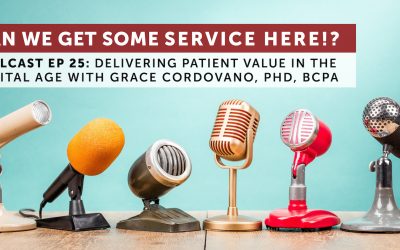Last weekend during dinner with my family, the topic of total knee replacements came up. My aunt, who is 70, is having her first procedure done and wants to know what information is available to help her make a better decision. She hoped that I might have some insights, since she knows I am researching bundled payments for total knee replacements.
I asked what she already knew. She stated she had plenty of anecdotal advice and recommendations from my uncle, her primary care physician, friends, and even professional colleagues. It varies a bit but basically consists of “I had my procedure done at this particular facility by this orthopedist and it was great.” This was helpful but did not really help her to know where to begin. She explained that she had gone to ‘Dr. Google’ and entered a particular recommended facility or provider, along with the keyword “total knee replacement.” This returned a large number of results. She clicked on a few links but quickly grew disheartened and frustrated by not readily finding the information she was looking for or learning the differences in the types of ratings data that was available. After printing out a dozen pages over 30 minutes, she gave up.
What’s most important to my aunt is her likely functional status a year or five years from now. How quickly she will be able to resume normal daily activities of living, such as walking and bathing, as well as her varied daily routine? Potential complications and pain associated with the procedure itself are a secondary concern given her health status.
Unfortunately, I told her that information is just not readily available. Several organizations, including CMS, provide limited outcomes-based information at a facility level on total knee replacements. Additionally, a tool made available by ProPublica last year provides limited outcomes-based information on how particular orthopedists have performed. She was unaware of a few of these resources and appreciated that I provided her with the details.
I tried to explain that a registry has been gradually adding facilities and collecting outcomes-based data on total knee replacements – but the data has not been made publicly available though and still only represents less than 20% of all total knee replacements done annually in the United States. Additionally, I mentioned several rating systems that evaluate the outcomes of total knee replacements – but these are not used or collected in any systematic fashion.
After explaining all of this, my aunt was more perplexed than ever. I told her to use some of the information sources I had provided but recommended that, in the end, she would have to make more of a “gut” decision on what facility and provider to choose. I did tell her to focus on a few other things she had overlooked:
• Did the orthopedist talk to her about her particular goals and preferences?
• Did the initial consultation with the orthopedist address particulars about what my aunt should expect, including detailed and patient-specific information on pre- and post-surgery concerns?
• What device does the orthopedist recommend, how long has he/she been using it, how many times he/she has implanted it, and what is the device’s track record been?
At end of this lengthy conversation, my aunt felt better, but she still didn’t know with what orthopedist she should schedule an initial consult. She was going to use some of the limited publicly available information and take a “leap of faith” after meeting with the orthopedist and obtaining additional information.
As I conduct further research on this topic and talk to various health IT vendors and medical device manufacturers, I am curious to see what types of solutions they offer to help providers (or payers) address this glaring need for outcomes data, as well as the administration and clinical management of bundled payments. Based on the dinner conversation with my aunt, I see several clear needs in this market:
• Increased outcomes information meaningful to patients – There is a need for patient-reported outcomes using a standardized, clinically-validated rating system for total knee replacement collected at a facility-level
• Risk-adjusted information on device performance – This is always going to be a challenging issue to address but information today is either limited to marketing collateral from device manufacturers or an orthopedist’s recommendations
• Customized care plans – Care pathways are increasingly being mentioned but patients need more transparency into what this means including how this is being translated into individualized care plans
• Patient-decision aid tools – Patients need tools to enable better shared decision-making and help to customize the options available to them
• Guarantees from the facility and/or device manufacturer – Some providers organizations and device manufacturers have become to offer this since 2014 but it still rare overall
• Price transparency – While this is not as much of a concern for Medicare patients especially those with Medigap coverage, it is for patients in traditional commercial coverage especially as deductibles and out-of-pocket limits continue to steadily increase
Surgical procedures, especially invasive procedure like total knee replacements, will always have a degree of risk and inevitable complications. If more responsibility, especially cost, is going to be thrust on to patients like my aunt, they need much more substantial information and tools to help them make this decision including where this procedure should be done, who should perform it, what device should be used, and what outcomes they can realistically expect to achieve.
For more information and analysis of the care management market, the 2017 Care Management Market Trends Report will be available shortly for purchase.





0 Comments